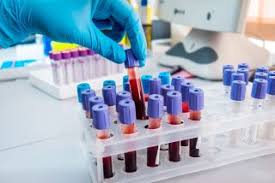New Delhi, July 28 (UNI)

Hepatitis B vaccine can protect children from infection within 24 hours of birth, but only 43 per cent of children worldwide are given this vaccine and millions of people lose their lives due to hepatitis B infection every year.
On World Hepatitis Day on Tuesday, the World Health Organisation (WHO) underlined the seriousness of hepatitis B infection in children and the importance of vaccinating children within 24 hours of birth, saying that no newborn should lose its life just because it was not vaccinated against hepatitis B.
WHO says that if the hepatitis B vaccine is given to newborns within 24 hours of birth, their risk of contracting this infection is reduced by 95 per cent. The first dose should be given to children within 24 hours of birth, but only 43 per cent of newborns worldwide are given this vaccine within the stipulated time. In Africa, only six per cent of newborns get their first dose on time.
A total of three doses of hepatitis B vaccine are given to children. The first dose may not be given to the children in time, but its three doses are given to 85 per cent of children around the world during childhood. In 2000, only 30 per cent children were able to get three doses of hepatitis B, which has since increased to 85 per cent in 2019.
WHO and Britain’s Imperial College, after studying the barriers to hepatitis B vaccine access due to the Coronavirus (Covid-19) found that children could not be given the vaccine in time due to Covid infection. Due to this, an additional 53 lakh cases of hepatitis B infection can be reported in children born between the year 2020 and 2030 resulting in an estimated one million deaths die due to this reason.
According to WHO, more than 250 million people worldwide suffer from hepatitis B infection and 90 per cent of children infected with hepatitis B become carriers in the first year of their birth. Nine million people lose their lives every year due to hepatitis B.
WHO Director-General Tedros Adhanom Gebrasse said that preventing hepatitis B infection from mother to child is most important. For this, it should be investigated in pregnant women and antiviral prophylaxis should be given to those who need it. In addition, hepatitis B vaccine penetration should be increased because it is an important vaccine. He said hepatitis, like many other diseases, is not only a health-related problem but it is also a social and economic burden.
But WHO has also reported that hepatitis B infection in children below five years has rapidly decreased to one per cent. Between 1980 and 2000 it was five per cent.
The goal of WHO, which released the Global Health Sector Strategy for the Eradication of Hepatitis in 2016, is to eradicate hepatitis by the year 2030, reduce the number of deaths due to its infection from 14 lakh to 50,000 a year and reduce the number of cases of infections.





